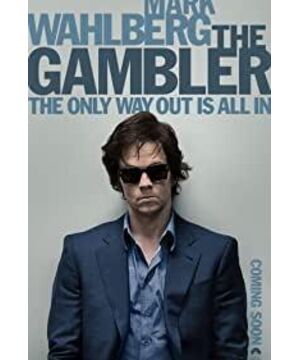Gamblers will be more empathetic watching this film.
Besides, there are some places I still can't understand after four or five years. Such as those dialogues in the first class.
Here I would like to clarify the approximate debt repayment process of the protagonist.
At the beginning, I owed 240,000 to Koreans, and I borrowed 50,000 from black people and then paid back 40,000 to Koreans, so I owed 200,000 to Koreans, and recorded it as -20.
The 50,000 owed to the black people agreed to pay back 60,000, which was recorded as -6.
After planning to play match-fixing, I borrowed 260,000 yuan from the fat white man, the interest was not mentioned, and the principal and profit were about -30; and then I borrowed 150,000 from the Koreans, and there was no interest, and it was about -18.
So far total debt=-20-6-30-18=740,000.
The 150,000 borrowed from the Koreans is a payment for students to play match-fixing. The fat white man's 260,000 privately bet on match-fixing, the amount of money after winning is unknown, and it is marked as X.
After winning the match-fixing, 60,000 blacks were paid back, and the total debt became 680,000.
In the last bet, after paying 680,000, there is still 100,000 left. It can be seen that the capital after the bet is 780,000. The odds of choosing one of red and black are simply regarded as 1 to 2, that is, the last bet is 78/2=390,000.
390,000 plus the 60,000 of the blacks, it can be seen that the fund X after match-fixing is 450,000. 45/26=1.73 is the odds of buying the student team with 7 points (this odds are slightly lower, maybe the interest assumed earlier is too much, that is, the last bet did not win as much as 780,000; it is also possible that the match-fixing bet did not 260,000, maybe gave 10,000 to tennis students first as a way to go to Las Vegas)
In addition, the 100,000 remaining after the debt was finally repaid was exactly the 50,000 that the protagonist wanted to give to the tennis students. The students don't want it, he doesn't care, and he gambles together, even if he wins.
Everything is calculated. The last gamble is really the ultimate gamble. I don't want more, I just want to say goodbye to my career as a gambler.
(PS, although this is a 14-year-old film, the plot should still use its original background in the 1970s, right? A grandson of a rich man in California was so embarrassed by the gambling debt of $200,000 or 300,000? )
View more about The Gambler reviews











